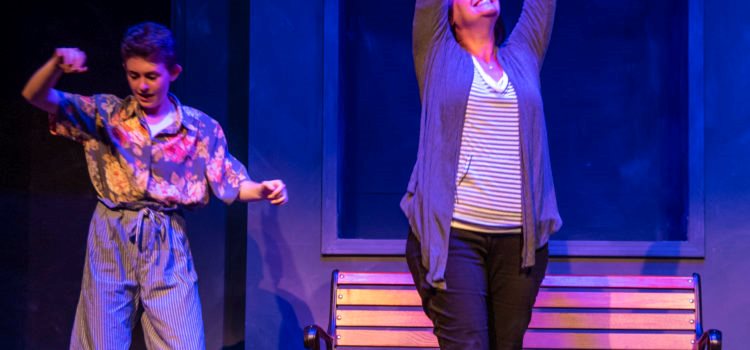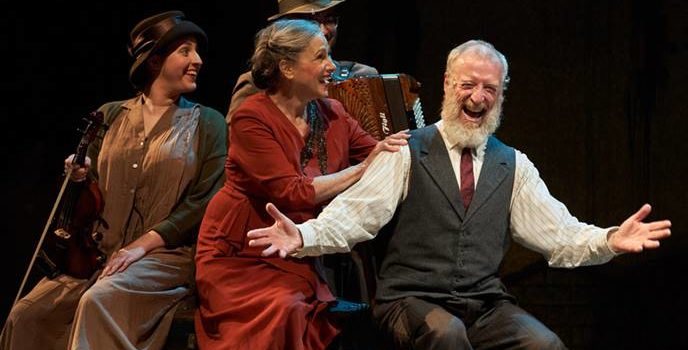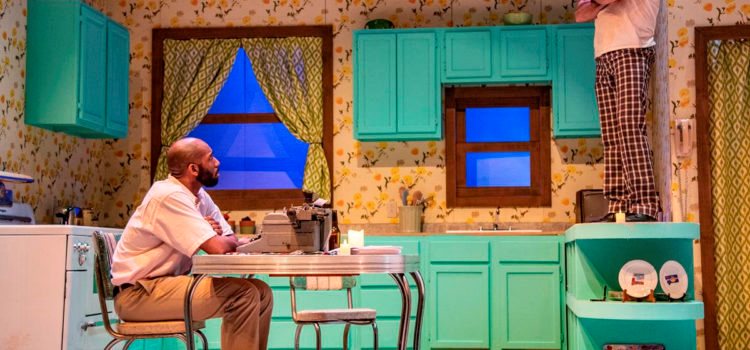St. Louis Actors’ Studio will produce the 7th LaBute New Theater Festival. The Theater Festival will run at the Gaslight Theater, 358 North Boyle, home to St. Louis Actors’ Studio.
Professional and high school submissions were accepted October through December 2018. To be considered entries had to have no more than four characters, and be crafted specifically to exploit our intimate performance space (18′ x 18′ stage). Changes in scenery or setting should be achievable in a few seconds and with few major set moves. Our focus is on fundamental dramaturgy: plot, character, theme.
Professional, new, previously unproduced one act play submissions (45 minutes or less) included a letter of inquiry, a synopsis and a 10-page sample from the script.
Four winning plays by high school students will be presented in readings at 11 a.m. on July 20 at the Gaslight Theater. Admission to the reading free.
Six plays were chosen: One group to be performed in the first two weeks of July, the final group in the second two weeks. “Great Negro Works of Art,” a Midwest premiere from Mr. LaBute, will be performed every night for the run of the festival.
“We are thrilled that Neil will be working with us again. Lending his name and talents to foster new works in the theater is just another example of his generosity and commitment to the arts and we could not be more proud to host this ongoing event,” says William Roth, Founder and Producing Director of St. Louis Actors’ Studio.
Festival Creative Team
Neil LaBute – Film Director, Screenwriter and PlaywrightWilliam Roth – Actor, Founder, Artistic Director St. Louis Actors’ StudioJohn Pierson – STLAS Assoc. Artistic Director, Actor, Teacher English and Theatre Departments John Burroughs SchoolNathan Bush – Actor, Professor of Theatre Arts -Oregon State UniversityMichael Hogan – Actor, DirectorWendy Greenwood, Theater Instructor Parkway SchoolsFranki Cambeletta, Founder, Shift FilmsRyan Foizey, Actor, Founder, Theatre LabEdward Scott Ibur –Novelist, Director, St. Louis Literary Award, Associate Director of Dual Enrollment at St. Louis University, Director, Gifted Arts(Writers & Artist Project for Middle School & High School)Julie B. Schoettley – Documentary Film Editor, Script Development EditorElizabeth Helman – Actor, Writer, Director, Professor of Theatre Arts -Oregon State UniversityMaggie Doyle Ervin – English Department, John Burroughs SchoolPatrick Huber – Associate Director, St. Louis Actors’ Studio-Set Design and Lighting, Teacher Theater, Design and Architecture Mary Institute, Country Day Prep SchoolThe following is a list of finalists for the Festival:
July 5-14, Set One:
“Great Negro Works of Art” by Neil LaBute, Directed by John Pierson“Color Timer” by Michael Long (Alexandria, VA), Directed by Jenny Smith“Privilege” – by Joe Sutton (West Orange, NJ), Directed by Jenny Smitn“Kim Jong Rosemary” by Carter W. Lewis (Stl, MO) Directed by John PiersonJuly 20-29, Set Two:
“Predilections” by Richard Curtis (NY,NY) Directed by Wendy Greenwood “Henrietta” by Joseph Krawczyk (NY,NY) Directed by Wendy Greenwood“Sisyphus and Icarus a Love Story” by William Ivor Fowkes (NY,NY) Directed by Wendy Greenwood“Great Negro Works of Art” by Neil LaBute, Directed by John PiersonHigh School Finalists:
Readings Saturday July 20, 2019 11 am FREE ADMISSION
“Razor Burn” by Theodore James Sanders (Houston, TX)“P.B and Gay” by Dylan Hasted (Glendale, CA)“Stressful Snacks” by Posey Bischoff (St. Louis, MO)“We’ll Go Down(In History)” by Ann Zhang (St. Louis, Mo)St. Louis Actors’ Studio (STLAS) strives to bring a fresh vision to theatre in St. Louis. Housed in The Gaslight Theater, a historic Gaslight Square, STLAS is committed to bringing engaging theatrical experiences to our community of actors, writers, producers, filmmakers and all patrons of the arts; and to provide a strong ensemble environment to foster learning and artistic expression.
WHEN: July 5 – 28, 2019
Evening Performances – Thursday – Saturday at 8pm
Sundays at 3pm
WHERE: The Gaslight Theater
358 N Boyle
St. Louis, MO 63108
TICKETS: $30-Student Seniors, $35 Adult
Individual tickets are available for purchase through Ticketmaster.com, all Ticketmaster Ticket Centers or Charge by Phone at 1-800-982-2787. Tickets will also be available at the theater box office one hour prior to performances.
For More Information call 314-458-2978 or visit stlas.org.

Lynn (Zipfel) Venhaus has had a continuous byline in St. Louis metro region publications since 1978. She writes features and news for Belleville News-Democrat and contributes to St. Louis magazine and other publications.
She is a Rotten Tomatoes-approved film critic, currently reviews films for Webster-Kirkwood Times and KTRS Radio, covers entertainment for PopLifeSTL.com and co-hosts podcast PopLifeSTL.com…Presents.
She is a member of Critics Choice Association, where she serves on the women’s and marketing committees; Alliance of Women Film Journalists; and on the board of the St. Louis Film Critics Association. She is a founding and board member of the St. Louis Theater Circle.
She is retired from teaching journalism/media as an adjunct college instructor.




